General
HERS-EA Inaugural Academy Closes on Euphoric Note
Published
8 years agoon
The curtains came down on the Higher Education Resource Services-East Africa (HERS-EA)’s Inaugural Academy on Friday 7th July 2017 at a colourful ceremony held at the Grand Global Hotel, Makerere. The few minutes prior to the start of closing ceremony painted a brief picture of what HERS-EA is all about; an army of volunteers, participants and facilitators joining in to redecorate the room, all under the careful watch of HERS-EA’s Chair-Dr. Ruth Muwazi and UK Coordinator-Ms. Naomi Lumutenga, as well as Acting Director Gender Mainstreaming Directorate (GMD)-Ms. Frances Nyachwo.
Right there was a live example of leadership and mentorship as the mostly younger ladies and few gentlemen got the room ready, at their seniors’ bidding. A few rooms away, HERS-EA Co-founders Prof. Margaret Khaitsa and Dr. Florence Wakoko-Studstill could be seen quietly engaging Amb. Oliver Wonekha, perhaps sharing strategies on future collaborations. H.E. Oliver Wonekha; Uganda’s Ambassador to the USA in transit to Rwanda, would later be joined at the event high table by the Vice Chair, Education Services Commission-Mrs. Elizabeth Gabona, Deputy Vice Chancellor (Academic Affairs)-Dr. Ernest Okello Ogwang and Vice Chancellor, Busitema University-Prof. Mary Okwakol. The Deputy Vice Chancellor (Finance and Administration) & Vice Chancellor-Elect – Prof. Barnabas Nawangwe and Principal, College of Humanities and Social Sciences (CHUSS)-Prof. Edward Kirumira completed the list of leaders in attendance at the closing ceremony.

Addressing the gathering, HERS-EA Chair-Dr. Ruth Muwazi thanked all invited guests for gracing the occasion as well as the conference sponsors for ensuring that the event was a success. “We thank the Inter-University Council for East Africa (IUCEA) who sponsored a number of non-Ugandan participants to attend the workshop, and Makerere University School of Women and Gender Studies under the Sida Project sub-programme and Principal Investigator, Dr. Consolanta Kabonesa who sponsored 10 participants.
“Makerere University Gender Mainstreaming Directorate headed by Ms Frances Nyachwo also sponsored 10 participants, and provided office space for the HERS-EA Secretariat, Makerere University Central Administration sponsored 10 participants and Sida (Swedish International Development Cooperation Agency) sponsored 10 participants” acknowledged Dr. Muwazi. HERS-EA UK Coordinator-Ms. Naomi Lumutenga continued with the acknowledgements by singling out Champions such as Prof. Barnabas Nawangwe, who ensured that the HERS-EA Secretariat secured office space, and was always on hand to advise the leadership. She also thanked the Principal, College of Veterinary Medicine, Animal Resources and Bio-Security-Prof. John David Kabasa for believing in HERS-EA’s vision right from the start, and Prof. Edward Kirumira who when approached appointed a liaison person for HERS-EA at CHUSS.
To the participants, Ms. Lumutenga commended the parable of talents (Matthew 25:14-30) saying, “I hope that we have helped you to dig into yourselves, discover your talents and hopefully use them, or else lose them. If you don’t develop it and you lose it and society will miss out on your unique contribution” she counseled.

She challenged participants to embrace the power of networking and mentoring, announcing that she had received offers by four ladies; all experts in their field, who are willing to edit participants’ publications and get them going on the path to excellent publication with leading journals. “Keep in touch with each other, share your stories to encourage other women and I hope that you have taken something out of this workshop to impact your life” concluded Ms. Lumutenga.
The Inaugural Academy drew participants from six countries namely; Kenya, Tanzania, Rwanda, Burundi, Ethiopia and the host country Uganda. Expressing his delight to the leadership for their kind acknowledgement of his contribution, Prof. Barnabas Nawangwe heartily congratulated HERS-EA upon not only pulling off their Inaugural Academy but also drawing participants from each of the six countries.
“I am glad that I facilitated you to achieve this success and I thank the pioneers, particularly the Ugandans based in the US for not forgetting their homeland. I also thank colleagues in Makerere such as Dr. Ruth Muwazi, Dr. Consolata Kabonesa, Ms. Frances Nyachwo and many others for collaborating with them to make HERS-EA a success” remarked Prof. Nawangwe.

Prof. Mary Okwakol is a lady of many firsts dotted across her long and successful career. Addressing the audience at the closing ceremony, she shared being the first female Vice Chancellor of a public University and first Vice Chancellor of Busitema University as some of the examples. In her brief remarks, the 2007 Graduate of HERS-South Africa showed that it was indeed possible to balance family and career.
“I got married soon after my first degree and this year, we mark 43 years in marriage” said Prof. Okwakol amidst prolonged applause and cheers from the audience. “I thank God for a stable family and a steady career. I have successfully raised three professional children; an Accountant, a Medical Doctor and a Lawyer and we have five grand children so far” she added.
Prof. Okwakol shared that her journey from a Graduate Assistant at Makerere University to the first female Vice Chancellor in Uganda should encourage young ladies that it is possible raise a family and build a successful career. She noted that HERS was at the bottom of her heart and expressed happiness that the link she had initiated between HERS-EA and IUCEA had produced results in form of sponsorship.
Speaking on behalf of the Vice Chancellor, Prof. John Ddumba-Ssentamu, the first deputy Vice Chancellor, Prof. Ernest Okello Ogwang thanked the HERS-EA Visionaries for reminding Makerere University Management of their responsibility to promote women leaders in Higher Education. “We thank the Facilitators who have so willingly given of their time to support this cause and we hope that you will not tire of giving back. We hope that those who have benefitted will always remember you for the difference you have made in their professional and personal lives” remarked Dr. Okello Ogwang.

He further noted that the beneficiaries’ gratitude to the organisers, supporters, facilitators and funders of the Inaugural academy would be best demonstrated through their proactive efforts to develop their respective institutions. He urged them to be supportive of other women and to always lead by example.
The HERS-EA Inaugural Academy beneficiaries were never short of examples of women who had successfully balanced family and career. Imagine starting out as a secondary school teacher and growing through the ranks to become the second-in-command at the Nation’s Education Sector Recruitment Agency… That is Mrs. Elizabeth Gabona’s testimony, currently serving as Vice Chair, Education Services Commission, after a career spent serving the education sector, including 37 years of stable marriage.
“I was present on that day, 5th August 2014 when we launched HERS-EA at Imperial Royale Hotel and it makes me very happy to come back today and witness the fruits of that launch. I congratulate the HERS-EA founders for their vision, voice and commitment to uplifting women and remembering to give back to their home, country and region” remarked Mrs. Gabona.
She noted that HERS-EA had demonstrated that its model was an excellent tool to move the East African Community (EAC) integration agenda forward, adding that women are the best change agents. She noted that self esteem was still a major obstacle for so many women and the best way to build it was right from the grassroots level. “Let us light our own sky for if we don’t, no one will do it” added Mrs. Gabona.

Allies are vital assets to the advancement of any cause or development agenda. HERS-EA has so far done a commendable job by securing female leaders from her consortium of partners to motivate female early career professionals. Nevertheless, Prof. Edward Kirumira in his remarks urged HERS-EA to step beyond the mentorship in female dominion and bring some males on board.
“My approach is based on the three prongs of Networking, Mentorship and Collaboration. In terms of networking, I urge all participants to look at the content of your academy material, pay attention to the people around you, and follow them up after this workshop and network with them” urged Prof. Kirumira.
With regard to Mentorship, Prof. Kirumira opined that the only way that HERS-EA would know that they had achieved their objective through registering an increased number of male mentors to the aspiring female professionals. On the Collaboration front, Prof. Kirumira shared that CHUSS by virtue of its over 10,000 student population and 293 Faculty Members presented a good starting point. “Let us sit down together and write these grant proposals. The funds are out there, let us go out and get them” he concluded.

Amb. Oliver Wonekha is a proud alumna, having secured both her BSc (Botany & Zoology) and Postgraduate Diploma in Education from Makerere University. Crowning the day’s speeches, Amb. Wonekha congratulated the founders upon not joining the crop of complaining Ugandans in the Diaspora but working hard to link the US to Uganda, “and to all of you here at home, the supporters, donors, universities, thank you for welcoming and being part of making this innovative idea a reality” she added.
Re-echoing Prof. Kirumira’s input on the need to include men in their networking, Amb. Wonekha urged the ladies to use the male leaders that already understood their cause to reach out to others. “Look out for these men because otherwise we are talking to ourselves. So let’s talk nicely to them, especially the Professors who are seated right here and the men in this room,” rallied the Ambassador, before adding “we start here and we build on that.”
The ambassador concluded her remarks on a note that resonated with the day’s theme; Advancing Women in Leadership: Empowered Women Empower Women. “I also did some balancing. I am a single parent with three daughters; One is working with the UN in Vienna, the second one is with Apple in the US and the third is a lawyer right here in Uganda, so you too can make it!”

Article by Public Relations Office
You may like
General
From Campus to Career: Makerere Advancement Office, 91st Guild and the DFCU Foundation Equip Students with Financial and Employability Skills
Published
1 week agoon
December 5, 2025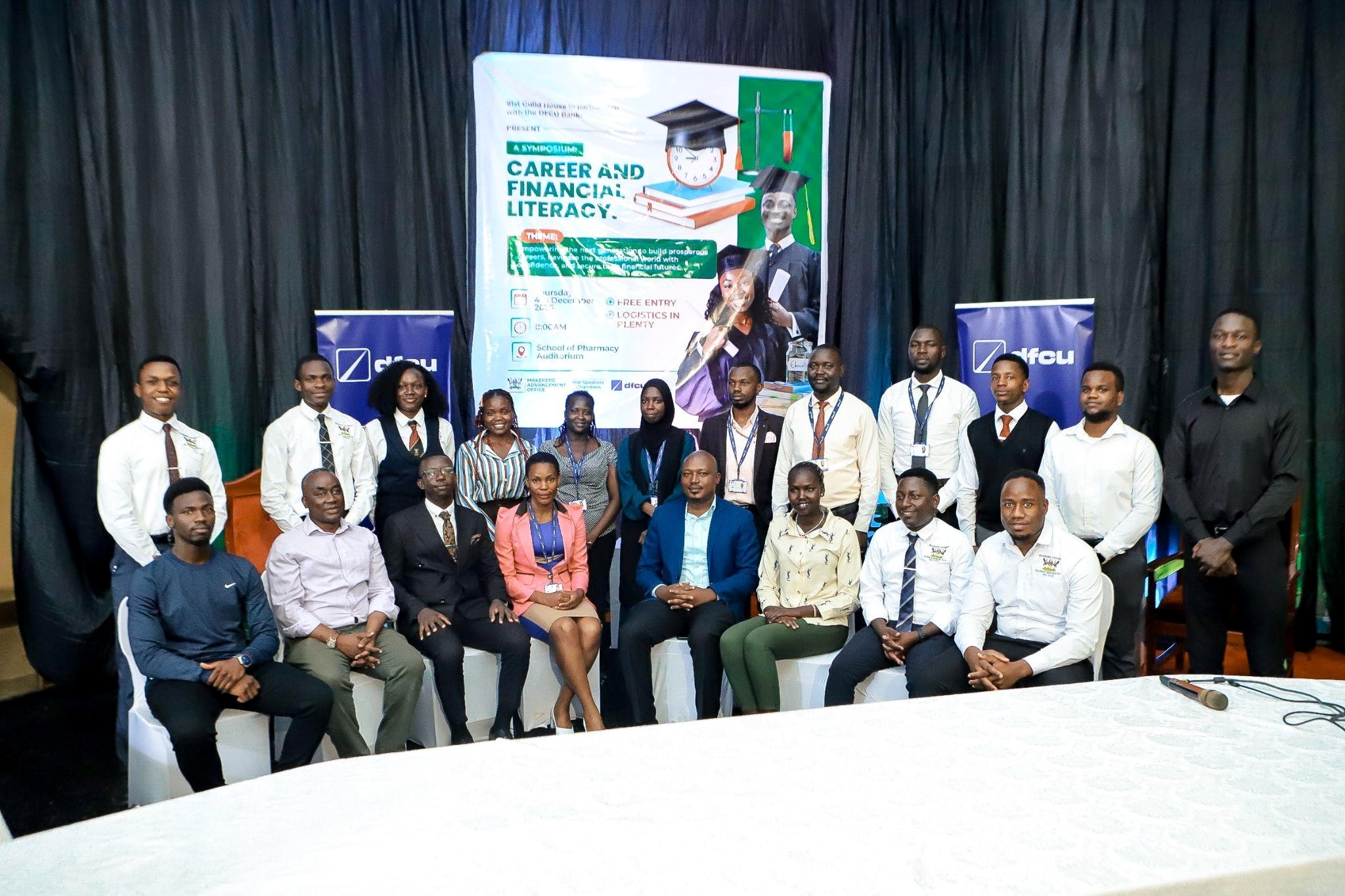
On 4th December, 2025, over 200 final-year students gathered at the School of Pharmacy Auditorium for the highly engaging Career & Financial Literacy Symposium, hosted by the 91st Students’ Guild, in partnership with the Makerere Advancement Office and the DFCU Foundation.
The symposium centred on student advancement through strategic partnership, convening students, administrators and development partners for a practical conversation on career readiness, financial literacy, employability, and personal development.
Advancement Through Partnerships
Speaking on behalf of the Makerere Advancement Office, Mr Awel Uwihanganye, Chief Advancement Officer, underscored the importance of partnerships such as the one with DFCU Foundation. He highlighted their importance in equipping students with marketplace skills and opportunities vital for individual growth after University.
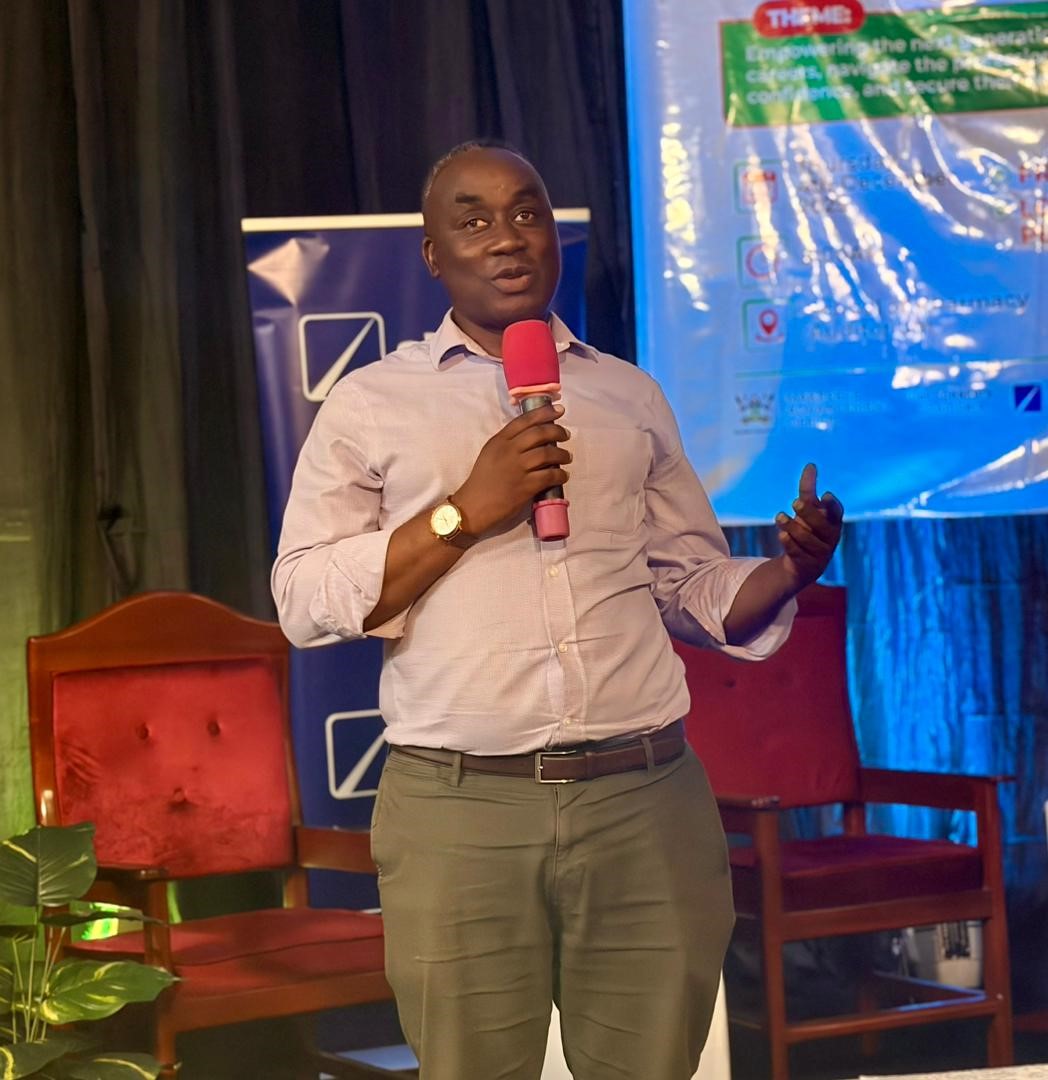
He reflected on the university journey as a formative period for ideas, innovation, and lifelong relationships, noting that:
“University is where impressions are made, and future networks are born. The friendships, character, and collaborations you develop here become foundations for careers, enterprises and leadership later in life.”
Mr. Uwihanganye encouraged students to embrace entrepreneurship, creativity and innovation, arguing that the emerging workforce is driven by technology, multi-tasking ability and idea generation rather than traditional single-path employment. He challenged students to build businesses, use digital platforms productively, and regard employment as only one income stream, not the only one.
The Student Perspective — Discipline, Skills and Trust
Speaking on student growth and personal development, Dr. Rodney Rugyema, Deputy Dean of Students, highlighted the realities facing new graduates, especially those entering the job market for the first time. With humour and honesty, he urged students to approach growth intentionally and responsibly.
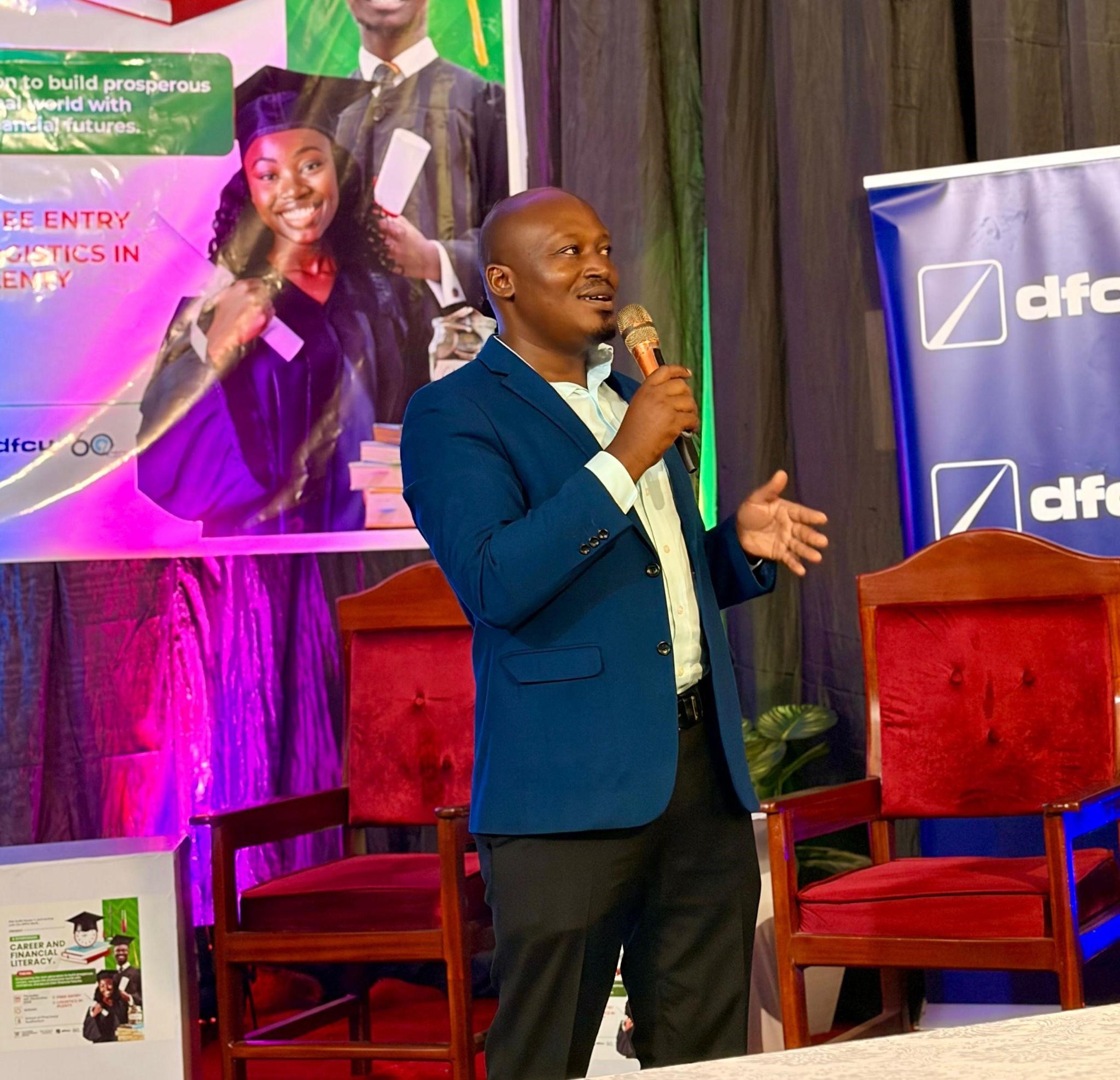
He called for delayed gratification, financial discipline and long-term decision-making, reminding students that wealth is built, not wished for. He emphasised the importance of skills beyond academic papers, stating that students must be equipped to create value, adapt, learn continuously, and gain competence relevant to modern work demands.
Dr. Rugyema underscored that trust, integrity and reliability remain the most non-negotiable pillars of professional advancement.
“Let people trust you enough to lend you an opportunity. Be a person who delivers. Your reputation is currency; it travels to rooms you are not in.” He noted
Financial Literacy for the Next Generation
The keynote training session was delivered by Mr. Simon Omara, Business Advisor representing the DFCU Foundation, who walked students through a highly practical presentation on financial planning, savings culture, credit management, record-keeping, career positioning and entrepreneurship.

With more than 10,000 graduates annually and less than 35% securing employment within the first year, Mr. Omara challenged students to practice financial and career ownership early. His presentation explored:
Key Competencies Students Must Build
- Financial management with a focus on budgeting, saving, and investing early
- Career readiness, CV development, interview skills, and personal branding
- Entrepreneurship and income diversification
- Record keeping and credit management
- Professional conduct and workplace preparation
He reminded students that the future belongs to those who are financially literate, skilled, trusted and entrepreneurial. Through relatable examples and actionable frameworks such as the 70–20–10 rule, the 7-second CV scan, and the 90-day post-graduation growth plan, Mr. Omara equipped participants with practical knowledge they could act upon immediately.
Why This Symposium Matters
This event stands as a testament to the power of partnership-driven student advancement, a core mandate of the Makerere Advancement Office. By convening industry partners like DFCU Foundation, the University continues to ensure that students graduate not only with knowledge, but with tools and readiness for opportunity.
The symposium strengthened linkages between academia and the labour market, expanded students’ perspective on financial independence, and emphasised the value of entrepreneurship, networks and character in shaping future leadership
The Makerere Advancement Office remains committed to facilitating opportunities that empower students to thrive beyond the gates of the University, through partnerships, mentorship, capacity-building, and exposure to real-world skillsets.
“ A degree alone is no longer enough. With partnership, preparation and purpose, our students can build futures anchored in knowledge, opportunity and resilience.” Mr Awel Uwihanganye noted during his remarks.
Caroline Kainomugisha is the Communications Officer, Makerere Advancement Office
General
Call For Expression of Interest: WEE-DiFine Research Initiative
Published
1 week agoon
December 5, 2025By
Mak Editor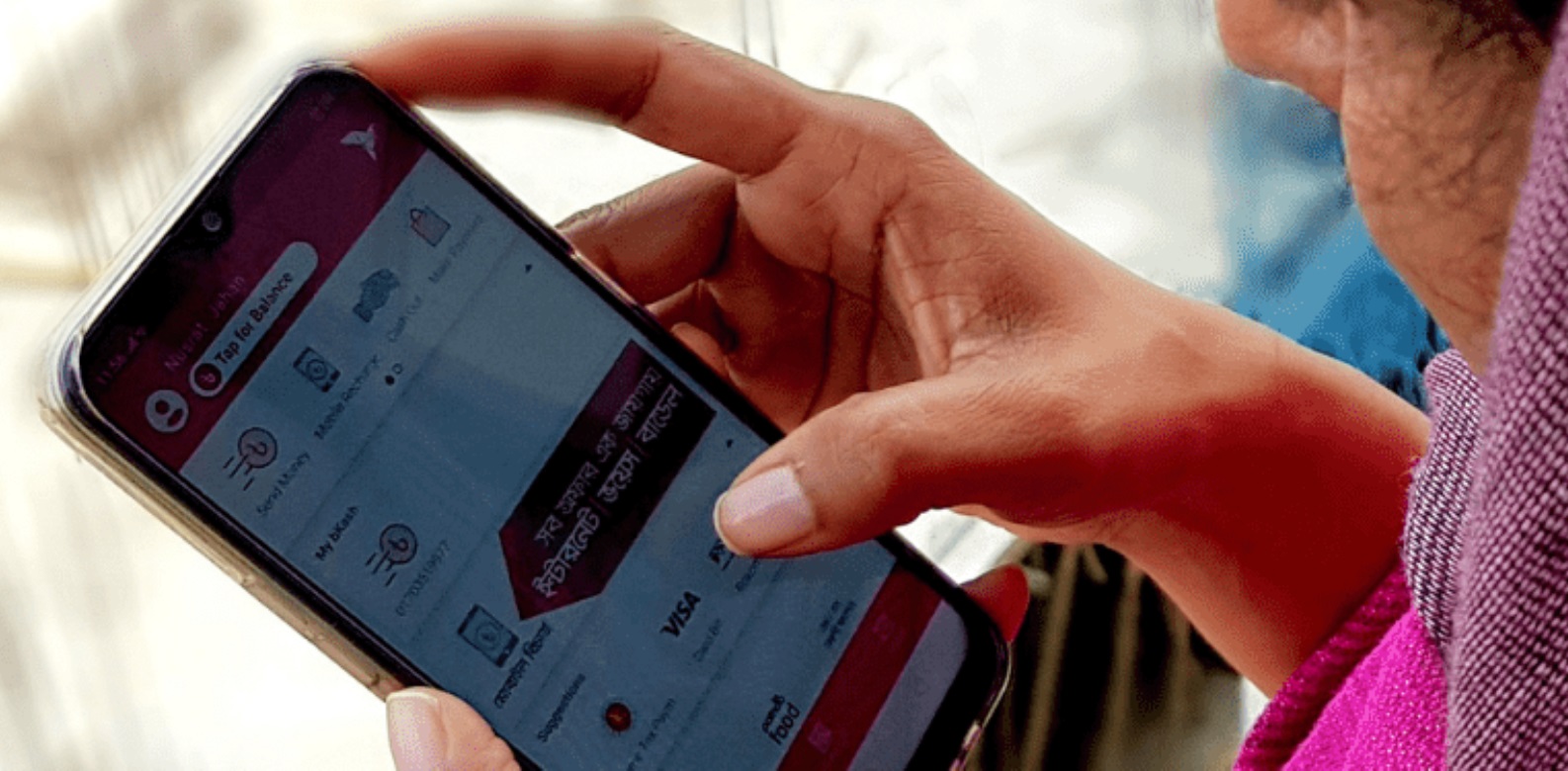
Introduction
WEE-DiFine, a BRAC Institute of Governance and Development (BIGD) led initiative made possible through funding from the Bill & Melinda Gates Foundation, is now accepting expressions of interest on a rolling basis for research projects that enhance the understanding of the role of digital financial services (DFS) in the economic empowerment of women by generating evidence on the causal mechanisms between the two.
Geographies of interest
WEE-DiFine is open to proposals from Sub-Saharan Africa, South Asia, and Southeast Asia. A comprehensive list of eligible countries is available in our FAQ document on our Resources page here. However, proposals from the following nine countries will be prioritized:
- India
- Bangladesh
- Pakistan
- Indonesia
- Nigeria
- Kenya
- Tanzania
- Uganda
- Ethiopia
Deadline: December 15, 2025 at 11:59 pm Bangladesh Standard time (BST) i.e. 8:59 pm EAT.
Please see Downloads for details
General
Trees That Still Give Shade: Celebrating the Life and Impact of Prof. Tumusiime-Mutebile
Published
1 week agoon
December 4, 2025By
Eve Nakyanzi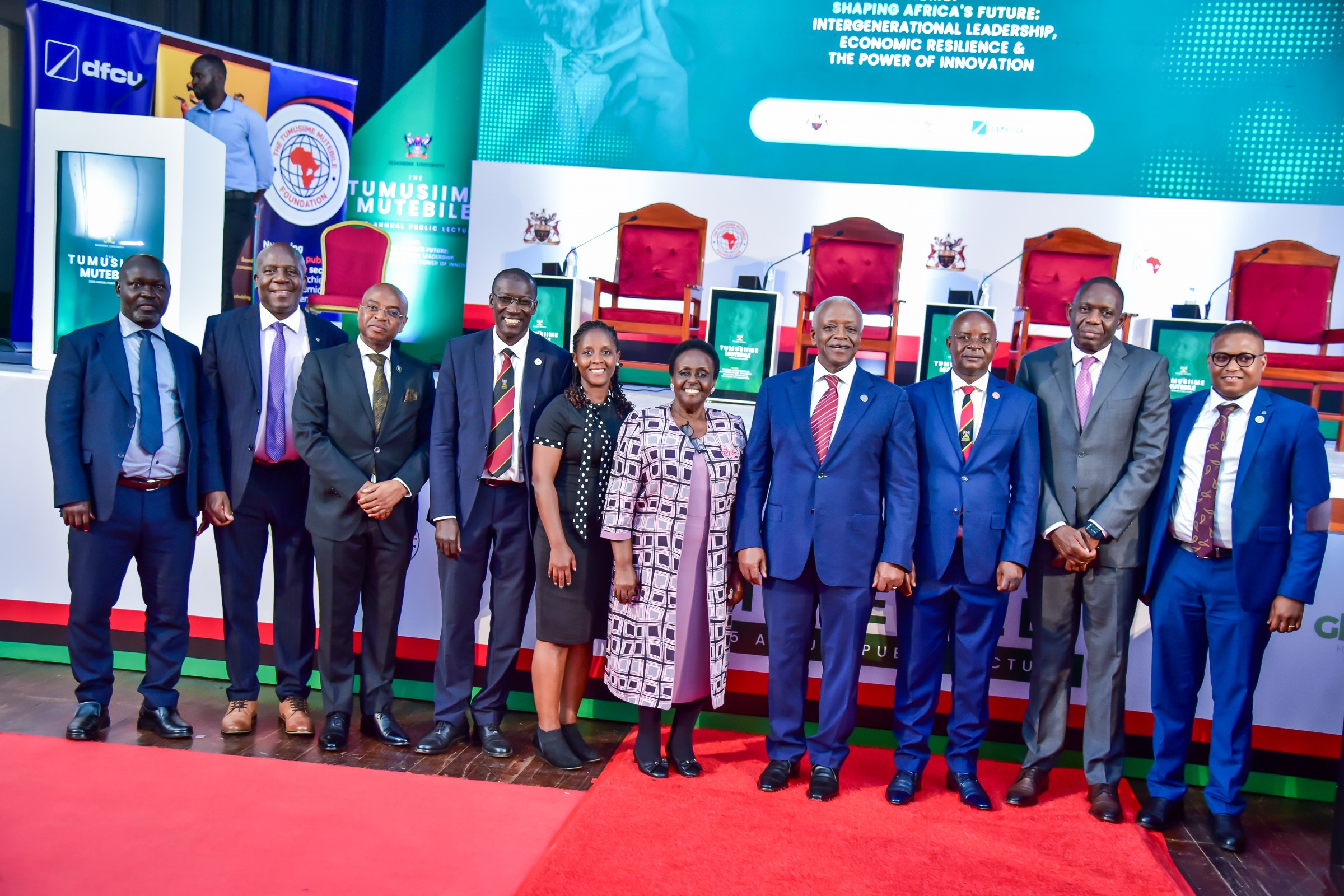
Makerere University on 3rd December, 2025 hosted the Tumusiime Mutebile Annual Lecture, a tradition established to honour the life and legacy of the late Prof. Emmanuel Tumusiime-Mutebile, an outstanding alumnus and former Governor of the Bank of Uganda who passed away in 2022. The lecture not only reflects on his remarkable contribution to Uganda’s economic leadership, but also highlights how innovation, resilience, and intergenerational vision can shape Africa’s future.
This year’s edition was anchored on three key pillars—intergenerational leadership, economic resilience, and the power of innovation—themes that defined Prof. Mutebile’s career and continue to influence national development. Through this annual series, the University upholds his memory while also celebrating other African leaders whose work has left a lasting mark on the continent, using their legacies to inspire thoughtful dialogue, policy reflection, and the next generation of transformative thinkers.
Celebrating an Enduring Legacy
In her remarks, the Acting Vice Chancellor, Prof. Sarah Ssali, reflected on Prof. Mutebile’s lifelong commitment to excellence, integrity, and the transformative power of education. She highlighted his journey from a student leader at Makerere to one of the country’s most influential economic thinkers, noting how his leadership in monetary policy, fiscal reform, and economic stabilization reshaped Uganda’s economic trajectory.
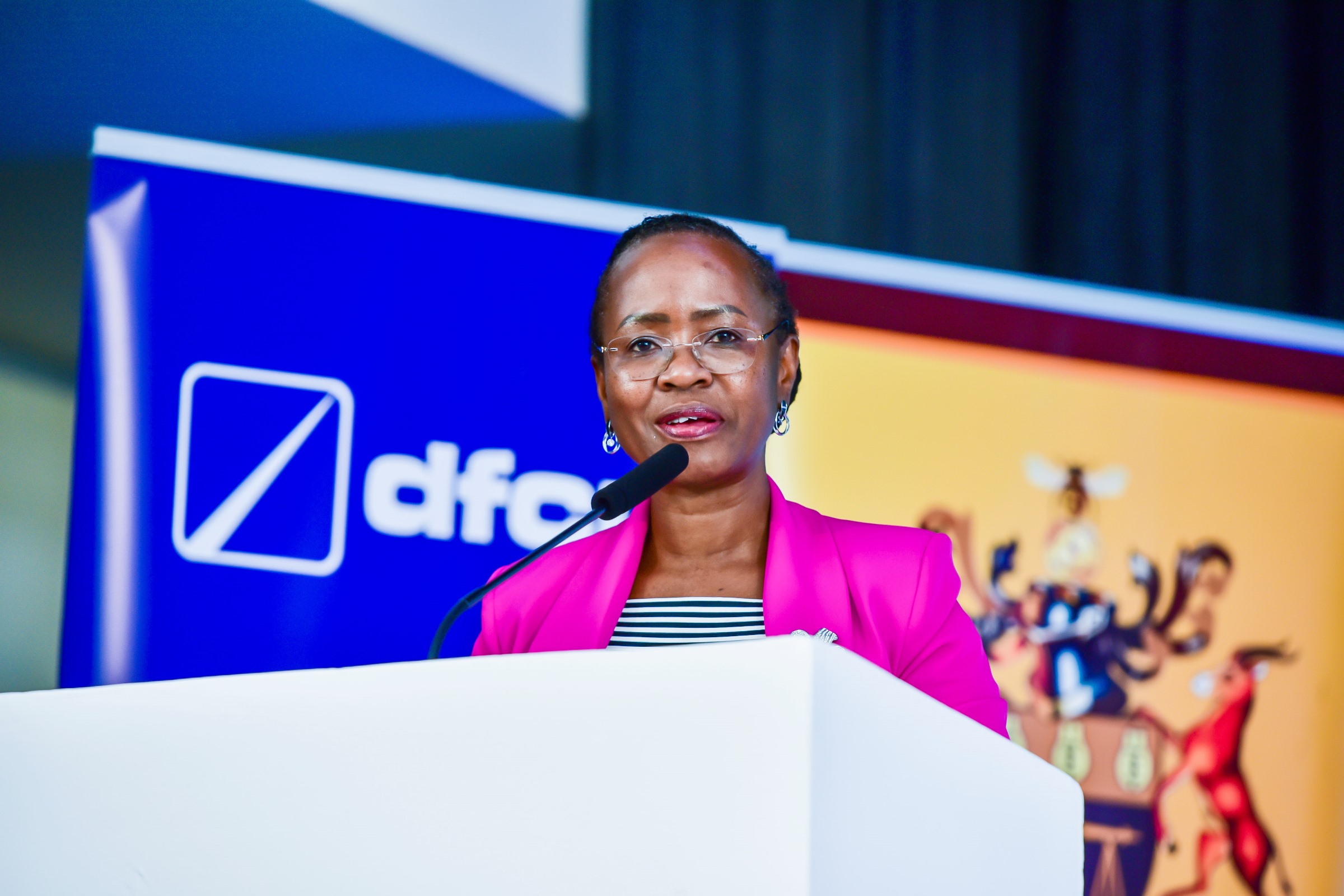
Prof. Ssali emphasized that this public lecture series not only honours Mutebile’s legacy but also bridges academia and practice—challenging students, scholars, and national leaders to pursue knowledge that serves the public good. She expressed gratitude to the Bank of Uganda under Dr. Michael Atingi-Ego, dfcu Bank, the GRO Foundation, the Mutebile family, and the Advancement Office for their continued support in sustaining a platform that nurtures economic thought leadership and inspires future generations.
Rt. Hon. Emeritus Amama Mbabazi, a lifelong friend and contemporary of the late Prof. Emmanuel Tumusiime-Mutebile, delivered a deeply personal reflection during the lecture. He recalled their shared beginnings as young student leaders at Makerere, their early political activism, and the historical moments that shaped both their lives and the nation. Speaking as both confidant and colleague, he emphasized Mutebile’s disciplined approach to economic policy, his unwavering belief in strong, accountable institutions, and his commitment to evidence-based, long-term decision making. Mbabazi outlined three pillars of Mutebile’s legacy—policy integrity, institutional strength, and leadership that prepares the next generation—values he affirmed are central to the work of the Tumusiime Foundation, which he now chairs.

He underscored the critical role of the private sector in Africa’s transformation, stressing the need for productivity-driven economies, skilled young people, and policy ecosystems that encourage innovation. He further called for intergenerational leadership that deliberately transfers knowledge, builds enduring institutions, and creates real opportunities for young Africans to lead. In closing, he urged academia, policymakers, and industry to work in partnership, noting that Africa’s progress depends on disciplined leadership, investment in human capital, and a shared commitment to building a future stronger than the present.
Fiscal Policies that have stood the test of time
The Governor of the Bank of Uganda, Dr. Michael Atingi-Ego, honored the late Prof. Emmanuel Tumusiime-Mutebile with a heartfelt tribute, praising him as “a great tree whose roots ran deep beneath the soil of this nation, nourishing all who followed.” He noted that Uganda continues to benefit from the “shade” of the policies Mutebile planted during his 21-year tenure—policies that stabilized the economy, strengthened institutions, and protected the financial system through multiple crises. He highlighted Mutebile’s role in restoring price stability through cash budgeting, bringing inflation down from triple digits to single digits, guiding the country through the 2008 global financial crisis with disciplined monetary policy, and maintaining public trust during the 2011 inflation spike through clear and transparent communication.

Dr. Atingi-Ego also credited him for steering Uganda safely through the COVID-19 pandemic by introducing liquidity support for banks, credit relief for borrowers, and targeted foreign exchange interventions. Reflecting on Mutebile’s long-term impact, the Governor remarked, “These are the ideas he planted—he never lived to enjoy the shade of the tree, but today, the country rests under it.” He further celebrated Mutebile’s commitment to innovation, citing the 2016 amendments to the Financial Institutions Act that unlocked agency banking, bancassurance, and Islamic banking—reforms that today anchor Uganda’s impressive financial inclusion gains.
Intergenerational Leadership blends agility and emotional intelligence
Eng. Dr. F. F. Tusubira delivered a compelling and deeply reflective keynote, grounding the theme “Intergenerational Leadership, Economic Resilience and the Power of Innovation” in both history and lived institutional experience. He expressed serious concern that although Africa is the world’s youngest continent—with over 65% of its population below 35—its systems continue to sideline young people from leadership and national decision-making, even as they are repeatedly called “leaders of tomorrow.” He argued that this generational exclusion is not merely unfair but dangerous, warning that nations cannot secure economic resilience while locking out the very demographic best equipped to navigate a rapidly evolving, technology-driven world.
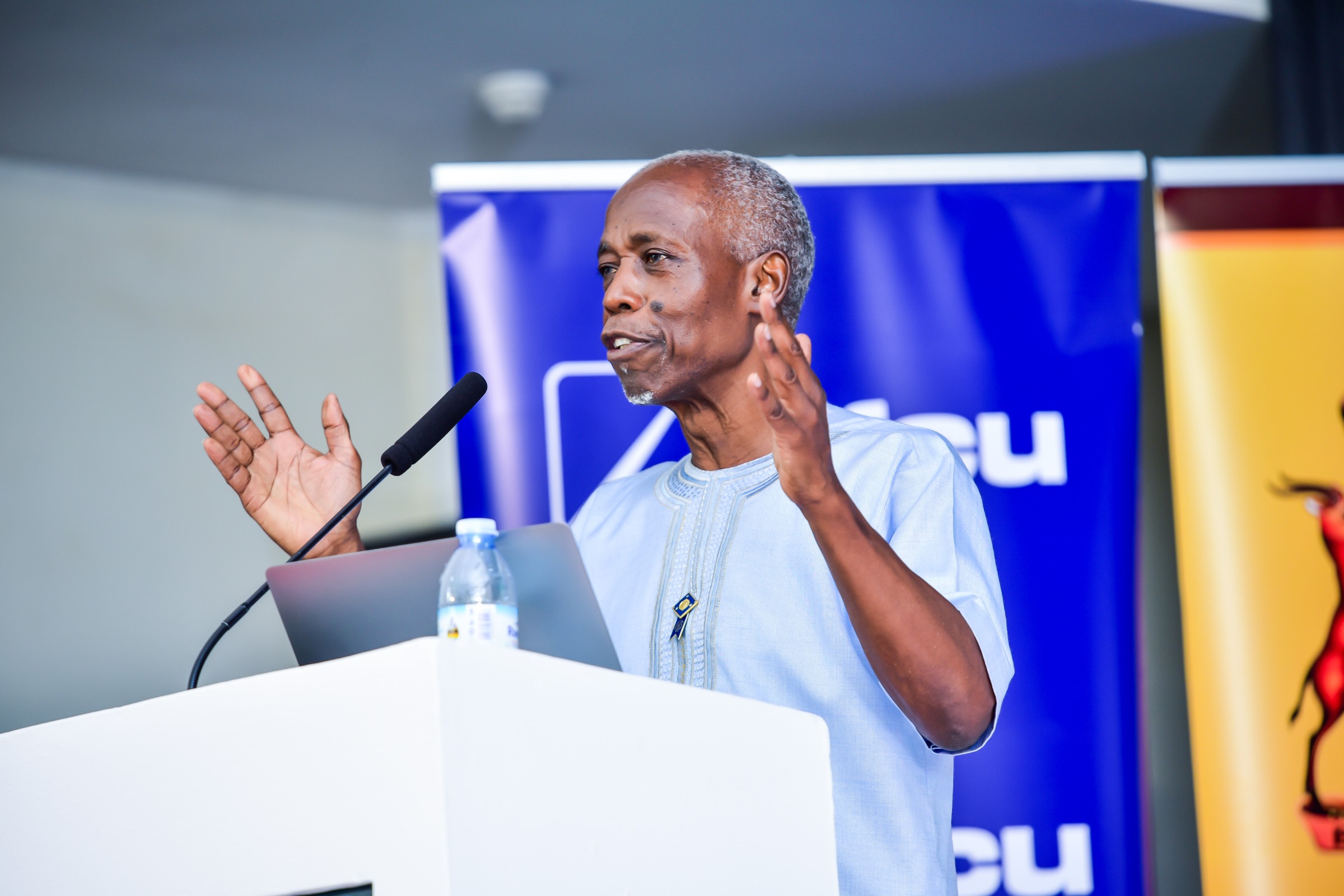
Drawing on African proverbs, global case studies, and personal anecdotes from Makerere and national institutions, he demonstrated how younger generations bring idealism, agility, innovation, and risk-taking—qualities essential for competitiveness—while older generations contribute emotional intelligence, institutional memory and a heightened sense of danger. He emphasized that progress requires blending these strengths through deliberate structures: fair representation of youth in boards and executive spaces, shared decision-making, reverse mentorship, and an institutional culture that values every generational perspective.

Dr. Tusubira also highlighted the urgent need for education reform, criticizing the continent’s entrenched “learning to pass exams” culture and calling for systems that cultivate creativity, problem-solving, and technical capability. He cautioned that without investing in human capital, digital literacy, and inclusive innovation ecosystems, Africa risks losing the very foundation of future competitiveness. His message was clear and powerful: intergenerational leadership is not optional—it is a survival strategy for institutions, businesses, and nations, especially in an era where, as he quoted, “it is not the strongest who survive, but those most responsive to change.”
The lecture was further enriched by an engaging panel discussion, which was moderated by Prof. Edward Bbaale, the Principal, College of Business and Management Sciences. He opened the discussion by deliberately centering today’s students and emerging leaders, framing the session as an intellectual reflection on the life, values and legacy of the late Prof. Emmanuel Tumusiime-Mutebile. He positioned the lecture’s theme — Shaping Africa’s Future: Intergenerational Leadership, Economic Resilience and the Power of Innovation — as urgent and practical, and introduced a cross-disciplinary panel whose expertise mirrors that urgency: Eng. Dr. F. F. Tusubira, Mr. Charles Mudiwa the Managing Director Dfcu Bank, and Prof. Faisal Buyinza the Ag. Dean, School of Economics.

Prof. Bbaale’s moderation enabled panelists to offer guidance on structural and cultural barriers to youth inclusion, the role of institutions in building resilience, and how academia, industry and policy can work together to turn innovation into jobs and scalable solutions — all the while reserving time for direct audience engagement and practical policy takeaways. Collectively, the panelists urged dismantling age-biased barriers and credential rigidities, creating new entry points and “tables” for youth leadership, scaling finance and training for startups and agribusiness, reforming pedagogy to prioritise skills and creativity, and deepening public-private-academic partnerships so innovation becomes inclusive growth rather than isolated experimentation.
The Family’s heartfelt appreciation
Mrs. Betty Tumusiime-Mutebile delivered heartfelt closing remarks, offering gratitude on behalf of the family and the Tumusiime-Mutebile Foundation. Speaking with deep emotion, she reflected on the late Professor’s character—his honesty, humility, hard work, and unwavering commitment to service above self. She thanked Makerere University, the Bank of Uganda, the Foundation’s leadership, and the many friends and colleagues who have continued to uphold his legacy, noting that although nearly four years have passed since his departure, his memory remains vivid and powerful for the family.

She recalled his devotion to both his public duty and his home, sharing personal stories of his leadership within the family and his steadfast faith that shaped their daily lives. Mrs. Tumusiime-Mutebile also highlighted the Foundation’s ongoing work in youth skilling, ethical governance, and private-sector development—initiatives rooted in his own vision. She concluded by inviting continued partnership to sustain the legacy he built, and led the gathering in singing his favourite chorus, a tender tribute to a man whose influence, she said, endures through the lives he touched.
Trending
-
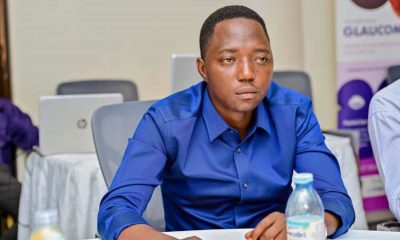
 General2 weeks ago
General2 weeks agoFrom Mastercard Foundation Scholar to Changemaker: Dr. Ekwaro Ronald’s Vision for Eye Health in Uganda
-

 General1 week ago
General1 week agoCall For Expression of Interest: WEE-DiFine Research Initiative
-
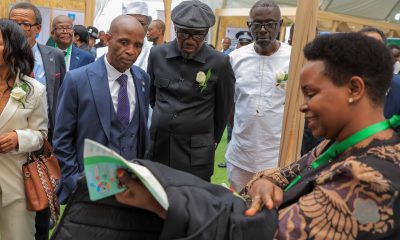
 Agriculture & Environment2 weeks ago
Agriculture & Environment2 weeks agoHow transformative education is shaping Africa’s next generation of innovators
-
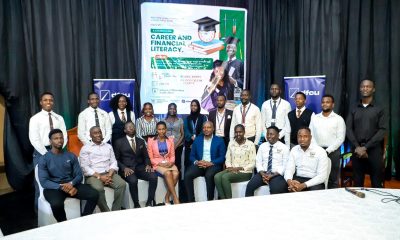
 General1 week ago
General1 week agoFrom Campus to Career: Makerere Advancement Office, 91st Guild and the DFCU Foundation Equip Students with Financial and Employability Skills
-
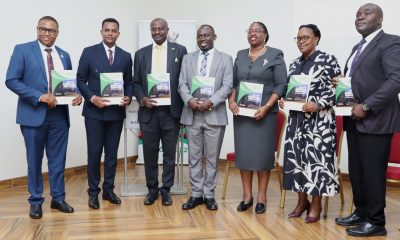
 Business & Management1 week ago
Business & Management1 week agoEfD-Mak, GRO Foundation & BoU Hold High-Level Roundtable on Green and SDG-Linked Financing
